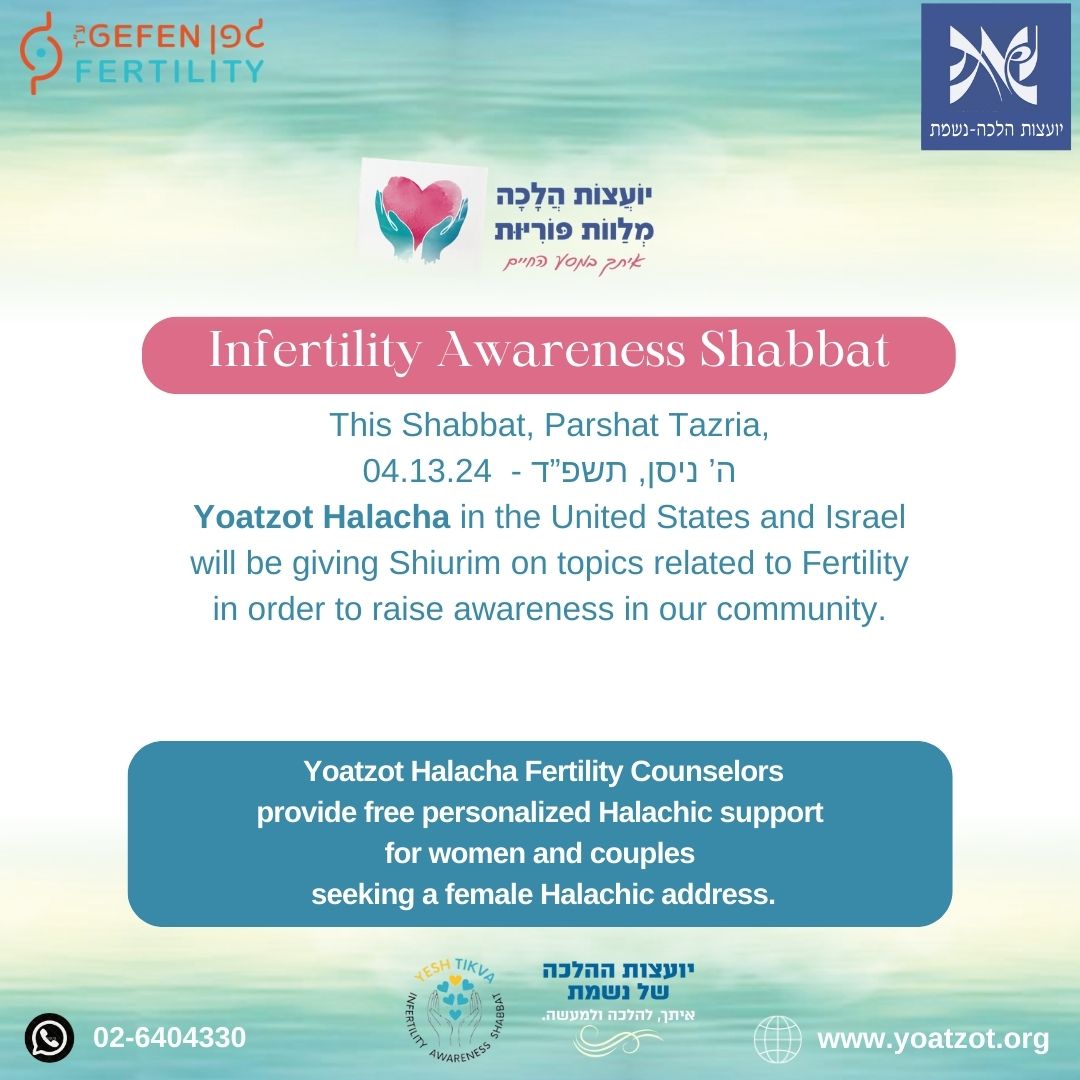Immersion for intimate speech
7 July, 2013
 Question:
Question:Hello, and thank you for your wonderful site.
My husband and I are spending a few weeks geographically apart due to work. During this time, should I still go to the mikveh? If I do go, does it become permissible for us to communicate more intimately when we speak? What are the general guidelines around intimacy from afar and does it require mikveh (i.e. does going to the mikveh have anything to do with it if it's from a distance)?
Thanks so much.
Answer:There are authorities who advise a woman not to immerse at all when her husband is out of town (or when she is out of town). However, the basic halacha is that immersion is permissible.
If there is no definite custom in your community or family to delay immersion in this situation, and certainly if there is any chance of an unexpected reunion earlier than planned, it is a good idea to immerse as scheduled.
During niddah, there are constraints on speech between husband and wife of a nature that may lead to intimacy. These constraints apply even when the couple is apart. If you were to immerse in a mikveh, becoming tehorah, these speech constraints would be lifted, and you could speak freely. It would still be critical to keep in mind, however, the prohibitions of hirhur, sexual fantasizing outside of the context of permitted relations, and of spilling seed, hotza'at zera levatalah.
Some communities have particular customs that apply if a woman immerses while her husband is away. In a community where such practices are customary, they would be appropriate. You could double check with your local rabbi where he stands on this issue. Otherwise, many halachic decisors, including our site's supervising rabbi, Rav Yehuda Henkin, deem such practices unnecessary.
Please write back with any further questions.
This internet service does not preclude, override or replace the psak of any rabbinical authority. It is the responsibility of the questioner to inform us of any previous consultation or ruling. As even slight variation in circumstances may have Halachic consequences, views expressed concerning one case may not be applied to other, seemingly similar cases. All health and health-related information contained within Nishmat's Women's Health & Halacha Web site is intended to be general in nature and should not be used as a substitute for consulting with your health care professional. The advice is intended to offer a basis for individuals to discuss their medical condition with their health care provider but not individual advice. Although every effort is made to ensure that the material within Nishmat's Women's Health & Halacha Web site is accurate and timely, it is provided for the convenience of the Web site user but should not be considered official. Advice for actual medical practice should be obtained from a licensed health care professional.
For further questions or comments: 
The Nishmat Women's Health and Halacha Site is a public service of Nishmat, The Jeanie Schottenstein Center for Advanced Torah Study for Women. This project and others like it are made possible by contributions from people like you. If you have benefited from the service, and wish to enable us to help others, click here to donate.
Users of Internet filtering services: This site discusses sensitive subjects that some services filter without visual indication. A page that appears 100% complete might actually be missing critical Jewish-law or medical information. To ensure that you view the pages accurately, ask the filtering service to whitelist all pages under yoatzot.org.






 Question:
Question:







